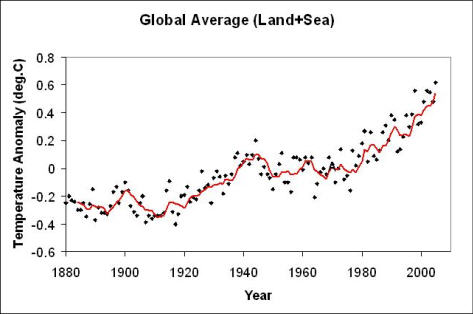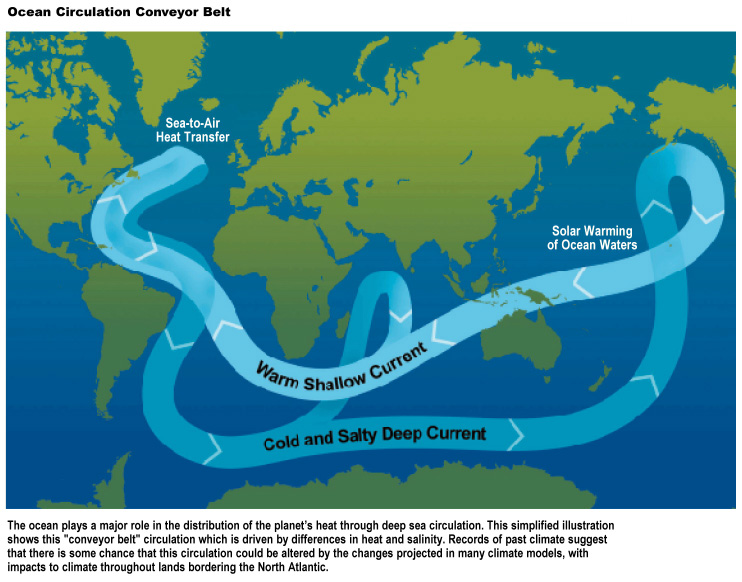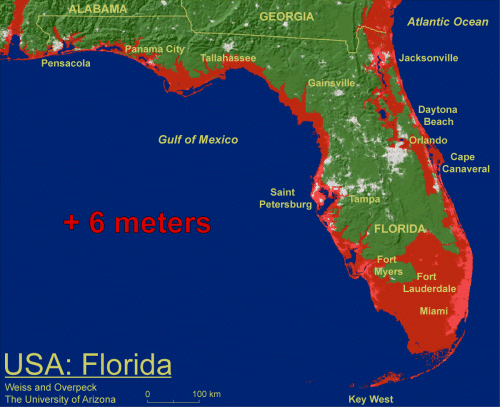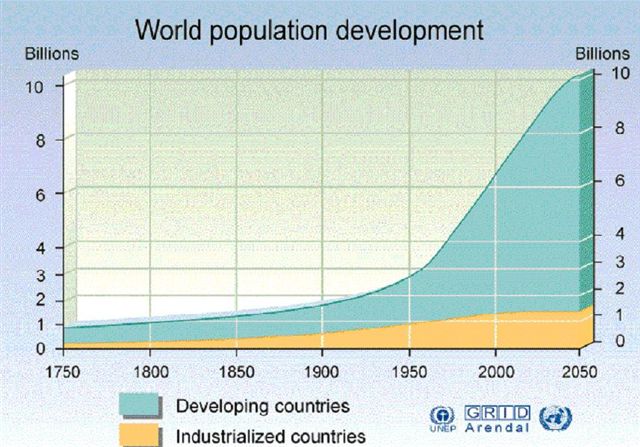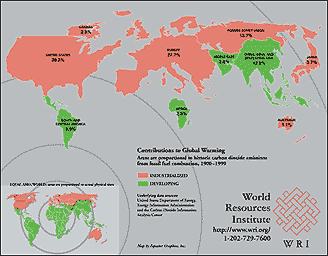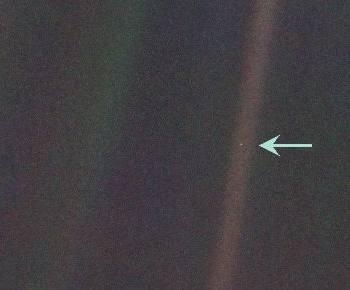 |
||
Global Warming Truth-Home » Environmental-tv-movies » Unofficial transcription of 'An Inconvenient Truth'-Part 2
»
|
||
Unofficial transcription of 'An Inconvenient Truth'-Part 2
A review of an 'Inconvenient Truth' Unofficial transcription of 'An Inconvenient Truth'-Part 1 ChildrenThe struggle, the victories that aren't really victories, the defeats that aren't really defeats can serve to magnify the significance of trivial . and exaggerate the seeming importance of massive setbacks. It just turned my whole world around. How should I spend my time on this Earth? I really dug in, trying to learn about it much more deeply. I went to the South Pole, the North Pole, the Amazon... The possibility of losing something that was precious to me... What we take for granted might not be here for our children. It turned my whole world upside down. It shook it until everything just fell out. My way of being in the world. It just changed everything for me. How should I spend my time on this earth? I really dug in, trying to learn about it much more deeply. I went to Antarctica, to the South Pole, North Pole, the Amazon. I went to places where scientists could help me understand parts of the issue I didn't really understand in depth. The possibility of losing what was most precious to me, I gained the ability that I maybe I didn't have before, but when I felt it, I felt that we really could lose. What we take for granted might not be here for our children. The 10 Hottest Years It's Natural!So the temperature increases are taking place all over the world, including in the ocean. This is the natural range of variability for temperature in the ocean. You know people say, "Aw, it just naturally go up and down, so don't worry about it." This is the range that would be expected over the last 60 years. But the scientists that specialize in global warming have computer models that long ago predicted this range of temperature increase. Ocean Temperature and StormsNow I'm going to show you, recently released, the actual ocean temperature. Of course when the oceans get warmer, that causes stronger storms. We have seen in the last couple of years, a lot of big hurricanes. Hurricanes Jean, Francis and Ivan were among them. In the same year we had that string of big hurricanes; we also set an all time record for tornadoes in the United States. Japan again didn't get as much attention in our news media, but they set an all time record for typhoons. The previous record was seven. Here are all ten of the ones they had in 2004. The science textbooks that have to be re-written because they say it is impossible to have a hurricane in the South Atlantic. It was the same year that the first one that ever hit Brazil. The summer of 2005 is one for the books. The first one was Emily that socked into Yucatan. Then Hurricane Dennis came along and it did a lot of damage, including to the oil industry. This is the largest oil platform in the world after Dennis went through. This one was driven into the bridge at Mobile. And then of course came Katrina. It is worth remembering that when it hit Florida it was a Category 1, but it killed a lot of people and caused billions of dollars worth of damage. And then, what happened? Before it hit New Orleans, it went over warmer water. As the water temperature increases, the wind velocity increases and the moisture content increases. And you'll see Hurricane Katrina form over Florida. And then as it comes into the Gulf over warm water it becomes stronger and stronger and stronger. Look at that Hurricane's eye. And of course the consequences were so horrendous; there are no words to describe it. Sirens, background music, Mayor Ray Nagin. The water is up to my neck. I don't think I'm going to make it. How in god's name could that happen here? There had been warnings that hurricanes would get stronger. There were warnings that this hurricane, days before it hit, would breach the levies and cause the kind of damage that it ultimately did cause. And one question that we, as a people, need to decide is how we react when we hear warnings from the leading scientists in the world. Winnie's WarningThere was another storm in the 1930's of a different kind, a horrible unprecedented storm in continental Europe. Winston Churchill warned the people of England that it was different from anything that had ever happened before, and they had to get ready for it. A lot of people did not want to believe it and he got real impatient with all the dithering. He said this: "The era of procrastination, of half measures, of soothing, and baffling expedience of delays is coming to its close. In its place we are entering a period of consequences." Making mistakes in generations and centuries past would have consequences that we could overcome. We don't have that luxury anymore. We didn't ask for it, but here it is. 2000 ElectionBackground: 2000 election debacle in Florida. We're officially saying that Florida is too close to call. Supreme Court throws the decision to Bush. Gore: While I strongly disagree with the court's decision, I accept it. I accept the finality of this outcome. Well, that was a hard blow. But you make the best of it. It brought into clear focus, the mission that I had been pursuing for all these years. I started giving the slide show again. Insurance
Effects of Global WarmingEurope has just had a year very similar to the one we've had where they say nature has just been crazy crazy, all kinds of unusual catastrophes like a major hike through the book of Revelations. Flooding in Asia, Mumbai, India this past July (2005): 37 inches of rain in 24 hours, by far the largest downpour that any city in India has ever received. A lot of flooding in China also. Global warming paradoxically causes not only more flooding, but also more droughts. This neighboring province right next door had a severe drought at the same time these areas were flooded. One of the reasons for this has to do with the fact that global warming not only increases precipitation world wide, but it also relocates the precipitation. Focus most of all on this part of Africa just on the edge of the Sahara. Unbelievable tragedies have been unfolding there and there are a lot reasons for it. Darfur and Niger are among those tragedies. One of the factors that has been compounding this is the lack of rainfall and the increasing drought. This is Lake Chad, once one of the largest lakes in the world. It has dried up over the last few decades to almost nothing. That has been complicating the other problems that they also have. The second reason why this is a paradox: Global warming creates more evaporation of the ocean that seeds the clouds, but it also sucks moisture out of the soil. Soil evaporation increases dramatically with higher temperatures. And that has consequences for us in the United States as well. Change and TimescalesGore revisits the family farm. His father grew up on the farm. Learning it from your dad on the land, that is something special. Eight months in DC in a hotel apartment and the rest of the time on the farm. As a kid it took me a while to learn the difference between fun and work. The places where people live were chosen because of the climate pattern that had been pretty much the same on Earth since the end of the last ice age. Here on this farm, patterns are changing. It seems gradual in the course of a human lifetime but in the course of time as defined by this river, it's happening very, very quickly. A Canary in the Coal Mine: The ArcticTwo canaries in the coal mine. The first one is in the Arctic. Of course the Arctic Ocean has a floating ice cap, Greenland on its side there. I say canary in the coal mine because the Arctic is one part of the world that is experiencing faster impact from global warming. This is the largest ice shelf in the Arctic, the Ward Hunt Ice Shelf. It just cracked in half a year ago. The scientists were astonished. Melting PermafrostThese are called drunken trees just going every which way. This is not caused by wind damage or alcohol consumption. These trees put their roots down in the permafrost and the permafrost is thawing, so they just go every which way now. This building was built on the permafrost and collapsed as the permafrost thawed. This woman's house has had to be abandoned. The pipeline is suffering a great deal of structural damage. Incidentally, the oil that they want to produce in that protected area in northern Alaska, which I hope they don't. They have to depend on trucks to go in and out of there and the trucks go over the frozen ground. This shows the number of days that the tundra in Alaska is frozen enough to drive on it. 35 years ago it was 225 days a year. Now it's below 75 days a year because the spring comes earlier and the fall comes later and the temperatures just keep on going up. Fastest Temperature Increase Occurs at the ArcticI went up to the North Pole. I went under that ice cap in a nuclear submarine that surfaced through the ice like this. This thing started patrolling in 1957. They have gone under the ice and measured with their radar looking upward to measure how thick it is because they can only surface where the thickness of the ice is 3 and half feet thick or less. So they have kept a meticulous record and they wouldn't release because it was national security. I went up there in order to persuade them to release them, and they did. And here's what that record showed. Starting in 1970 there was a precipitous drop off in the amount and extent and thickness of the arctic ice cap. It has diminished by 40 percent in 40 years. There are two studies showing that in the next 50 or 70 years in summertime it will be completely gone. Now you might say, "Why is that a problem? How could the arctic ice cap actually melt so quickly?" When the sun's rays hit the ice, more than 90 percent of it bounces off right back into space like a mirror. But when it hits the open ocean more than 90 percent is absorbed. As the surrounding water gets warmer, it speeds up the melting of the ice. Right now the arctic ice cap acts like a giant mirror. All the sun's rays bounce off, more than 90 percent, to keep the earth cooler. But as it melts and the open ocean receives that sun's energy instead more than 90 percent is absorbed. So there is a faster build up of heat here at the North Pole in the Arctic Ocean and the Arctic generally than any where else on the planet. That's not good for creatures like polar bears that depend on the ice. A new scientific study shows that for the first time they're finding polar bears that have actually drowned, swimming long distances up to 60 miles to find the ice. They did not find that before. What does it mean to us to look at vast expanse of open water at the top of our world that used to be covered by ice? We ought to care a lot because it has planetary effects. Earth's Climate is an EngineThe earth climate is like a big engine for redistributing heat from the equator to the poles. It does that by means of ocean current and wind current. They tell us, the scientists do, that the earth climate is a non-linear system. It's a fancy way they have of saying that the changes are not all just gradual. Some of them come suddenly in big jumps. On a world wide basis the annual average temperature is about 58 degrees Fahrenheit. If we have an increase of 5 degrees, which is on the low end of the projection, look at how that translates globally. That means an increase of only 1 degree at the equator but more than 12 degrees at the poles. So all those wind and ocean current patterns that have formed since the last ice age and have been relatively stable, they are all up in the air and they change. Disruption of the Ocean ConveyorAt the end of the last ice age as the Vlad glacier was receding from North America, the ice melted and a giant pool of fresh water formed in North America. The Great Lakes are the remnants of that huge lake. An ice dam on the eastern border formed, and one day it broke. All that fresh water came rushing out, ripping open the St. Lawrence, there. It diluted the salty dense cold water, made it fresher and lighter so it stopped sinking. And that pump shut off and the heat transfer stopped, and Europe went back into an ice age for another 900 or 1000 years. The change from conditions we have here today to an ice age took place in perhaps as little as 10 years time. That is a sudden jump. Of course that's not going to happen again, because the glaciers of North America are not there. Is there any big chunk of ice anywhere near there? Oh yeah, (pointing at Greenland). We'll come back to that one. Politics: Reagan, Bush1 and KyotoIt is extremely frustrating to me to communicate . and we are still by far the worst contributor to the crisis. I look around and look for really meaningful signs that we are about to really change. I don't see it right now. Reagan: Very reputable scientists have said that one factor of air pollution is oxides of nitrogen from decaying vegetation. This is what causes the haze that gave the Big Smokey Mountains their name. Bush I: This guy is so far off on the environmental extremes, we'll be up to our neck in owls and out of work for every American. This guy's crazy! This is perhaps the greatest hoax that has ever been perpetuated on the American People. If it is not on the tips of their constituents tongues, it's easy for them to ignore it. They say, "Well, let's deal with that tomorrow." Predator/Prey Disruptions and Misplaced CitiesSo this same phenomenon of changing all these patterns is also changing the seasons. Here is a study from the Netherlands. The peak arrival date for migratory birds 25 years ago was April 25. Their chicks hatched on June 3, just at the time when the caterpillars were coming out: Nature's plan. But 20 years of warming later the caterpillars peaked two weeks earlier. The chicks tried to catch up with it, but they couldn't. So they are in trouble. There are millions of ecological niches that are affected by global warming in just this way. This is the number of days with frost in southern Switzerland over the last one hundred years. It has gone down rapidly. But now watch this. This is the number of new exotic species that have rushed in to fill the new ecological niches that are opening up. That's happening here in the United States too. You've heard of the pine beetle problem? Those pine beetles used to be killed by the cold winter, but there are fewer days of frost. So the pine trees are being devastated. This is part of the 14 million acres of spruce trees in Alaska that have been killed by bark beetles, the exact same phenomenon. There cities that were founded because they were just above the mosquito line. Nairobi is one. Harare is another. There are plenty of others. Now the mosquitoes with warming are climbing to hirer altitudes. Infectious DiseaseThere are a lot of vectors for infectious diseases that are worrisome to us that are also expanding their range, not only mosquitoes but all these others as well. We've had 30 so-called new diseases that have emerged in just the last quarter century. A lot of them like SARS have caused tremendous problems. The resistant forms of tuberculosis. There has been a re-emergence of some diseases that were once under control. The Avian flu, of course is quite a serious matter, as you know. West Nile Virus came to the eastern shore of Maryland in 1999. Two years later it was across the Mississippi. And two years after that it had spread across the continent. These are very troubling times. Coral ReefsCoral reefs all over the world because of global warming and other factors are bleaching and they end up like this. All the fish species that depend on the coral reef are also in jeopardy as a result. Overall species loss is now occurring at a rate 1000 times greater than the natural background rate. The Second Canary: Antarctic Peninsula Sea IceThis brings me to the second canary in the coal mine, Antarctica, the largest mass of ice on the planet by far. A friend of mine said in 1978, "If you see the break up of ice shelves along the Antarctic Peninsula, watch out, because that should be seen as an alarm bell for global warming. If you look at the peninsula up close, every place where you see one of these green blotches is an ice shelf larger than the state of Rhode Island that has broken up in just the last 15 to 20 years. I want to focus on just one of them called Larsen B. I want you to look at these black pools here. It makes it seem almost as if we are looking through the ice to the ocean beneath. But that's an illusion. This is melting water that forms this pool. If you were flying over it in a helicopter, you'd see it 700 feet tall. They are so majestic, so massive. In the distance are the mountains, and just before the mountains is the shelf of the continent. This is floating ice, and there is land based ice on the down-slope of those mountains. From here to the mountains is about 20 to 25 miles. They thought this would be stable for about a hundred years, even with global warming. The scientists who study these ice shelves were absolutely astonished when they were looking at these images. Starting in January 31, 2002, in a period of 35 days, this ice shelf completely disappeared. They could not figure out how in the world this happened so rapidly. They went back to figure out where they had gone wrong. That's when they focused on those pools of melting water. Even before they could figure out what had happened there, something else started going wrong. When the floating sea-based ice cracked up, it no longer held back the ice on the land. The land-based ice then started falling into the ocean. It was like letting the cork out of a bottle. There's a difference between floating ice and land-based ice. It's like the difference between an ice cube floating in a glass of water, which when it melts doesn't raise the level of water in the glass, and a cube sitting atop a stack of ice cubes, which melts and flows over the edge. That's why the citizens of these pacific nations had all had to evacuate to New Zealand. West Antarctica Land Based IceI want to focus on West Antarctica, because it illustrates two factors about land-based ice and sea-based ice. It's a little of both. It's propped on tops of islands, but the ocean comes up underneath it. So if the ocean gets warmer, it has an impact on it. If this were to go, sea levels worldwide would go up 20 feet. They've measured disturbing changes on the underside of this ice sheet. It's considered relatively more stable, however, than another big body of ice that is roughly the same size. Greenland Impact of 20 Foot Rise in Sea LevelIn 1992 they measured this amount of melting in Greenland. 10 years later this is what happened. And here is the melting from 2005. Tony Blair's scientific advisor has said that because of what is happening in Greenland right now, the map of the world will have to be redrawn. If Greenland broke up and melted, or if half of Greenland and half of West Antarctica broke up and melted, this is what would happen to the sea level in Florida. Civilization and EarthThis issue is the same for China as it is for the US. Separating the truth from the fiction and the accurate connection from the misunderstanding is part of what you learn here. When the warnings are accurate and based on sound science, then we as human beings, whatever country we live in, have to find a way to make sure that the warnings are heard and responded to. We both have a hard time shaking loose the familiar patterns that we relied on in the past. We both faced completely unacceptable consequences. We are witnessing a collision between our civilization and the Earth. There are three factors that are causing this collision.
The Tobacco IndustryI don't remember a time when I was a kid when summertime didn't mean working with tobacco. I used to love it. It was during that period when working with the guys on the farm seemed like fun to me. Starting in 1964 with the Surgeon General's report, the evidence was laid out on the connection between smoking cigarettes and lung cancer. We kept growing tobacco. Nancy was almost 10 years older than me, and there were only two of us. She was my protector and my friend at the same time. She started smoking when she was a teenager and never stopped. She died of lung cancer. That's one of the ways you don't want to die. The idea that we had been part of that economic pattern that produced the cigarettes that produced the cancer, it was so painful at so many levels. My father, he had grown tobacco all his life. He stopped it. Whatever explanation that seemed to make sense in the past, just didn't cut it anymore. He stopped it. It's just human nature to take time to connect the dots. I know that. But I also know that there can be a day of reckoning when you wished you had connected the dots more quickly. Three Misconceptions
States and CitiesAre we going to be left behind as the rest of the world moves forward? All of these nations have ratified Kyoto. There are only two advanced nations in the world that have not ratified Kyoto and we are one of them. The other is Australia. Luckily several states are taking the initiative. The nine northeastern states have banded together on reducing CO2. California and Oregon are taking the initiative. Pennsylvania is exercising leadership on solar power and wind power. US cities are stepping up to the plate. One after the other, we have seen all these cities pledge to take on global warming. Rising to the OccasionWhat about the rest of us? Ultimately this question comes down to this: Are we as Americans capable of doing great things even though they are difficult? Are we capable of rising above ourselves and above history? The record indicates that we do have that capacity. We formed a nation. We fought a revolution and brought something new to this Earth, a free nation guaranteeing individual liberty. America made a moral decision that slavery was wrong and that we could not be half free and half slave. We as Americans decided that of course women should have the right vote. We defeated totalitarianism and won a war in the Pacific and the Atlantic simultaneously. We desegregated our schools and cured some diseases like polio. We landed on the moon, the very example of what's possible when we are at our best. We worked together in a completely bipartisan way to bring down communism. We have even solved a global environmental crisis before, the hole in the stratospheric ozone layer. This was said to be an impossible problem to solve because it's a global environmental challenge requiring cooperation from every nation in the world. But we took it on, and the United States took the lead in phasing out the chemicals that caused that problem. So now we have to use our political processes in our democracy and then decide to act together to solve those problems. But we have to have a different perspective on this one. It is different than any problem we have faced before. Our Only Home
I believe this is a moral issue. It is your time to sieze this issue. It is our time to rise again to secure our future. There's nothing that unusual about what I'm doing. What is unusual is that I had the privilege to be shown it as a young man. It is almost as if a window was opened through which the future was very clearly visible. See that? That is the future in which you are going to live your life. Future generations may well have occasion to ask themselves. "What were our parents thinking? Why didn't they wake up when they had a chance?" We have to hear that question from them, now. |
|
|
